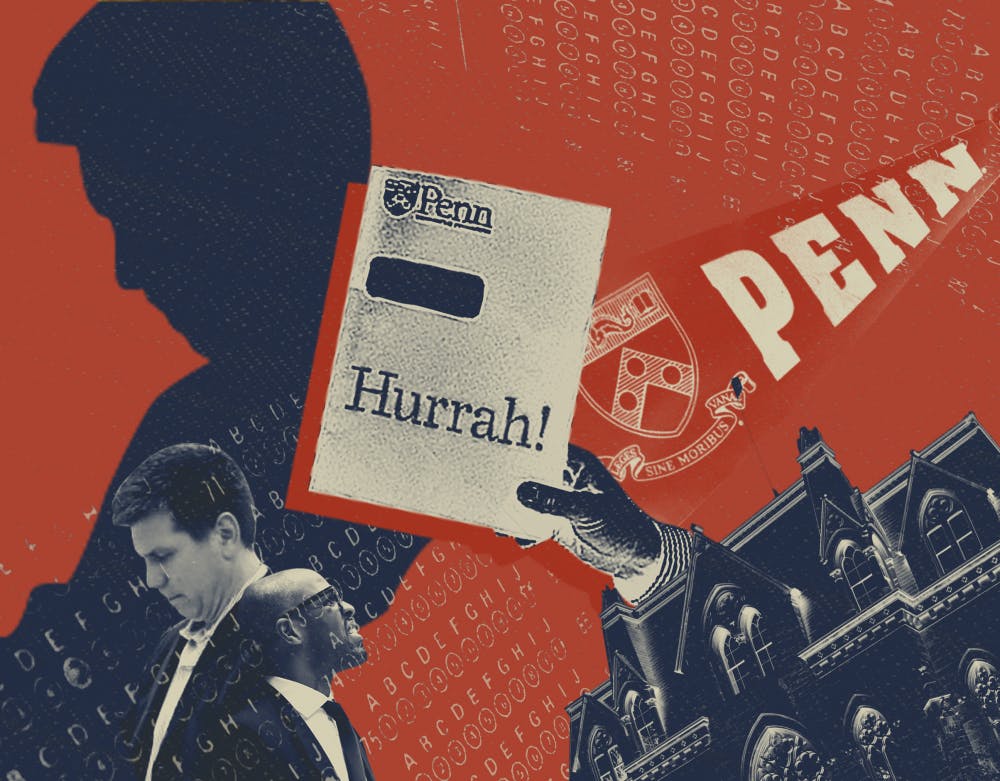
It’s been one week since the college admission scandal broke. I was in the midst of working on a high school junior’s college list, making sure it was balanced with a good mix of “likely,” “target,” and “reach” schools, when my phone started buzzing. My first message came from a Penn alum — yes, I stay in touch with my Penn friends. The Facebook messenger post stated, “Holy cr*p. Are you hearing about this huge admissions fraud case? Turn on CNN.” As I ran to turn on my television, two more texts came in with similar messages.
I stood silently as the charges were announced. In the meantime, my phone was blowing up with emails, texts, and other messages from, it seemed, everyone I’ve ever known.
By now, everyone has seen the pervasive stories, covered from every angle, of this college admission scandal.
The last week has been unbelievable. The amount of chatter on our college admission talk lists and private Facebook pages (yes, most people my age use Facebook!) has been constant. Everyone has an opinion, something to say about the scandal.
Remember though, the man at the center of the scandal acted criminally. He was not a counselor associated with any of the professional organizations (Independent Educational Consultants Association, Higher Education Consultants Association, National Association for College Admission Counseling). Rather he was a crooked businessman who simply claimed to be a “college counselor.” My colleagues in our professional organizations work hard to help students find the “best fit” colleges. We help with everything (creating college lists, preparing for interviews, brainstorming essays, discussing summer opportunities — basically we explain the process to students who really don’t know how to begin approaching it), and we teach students how to go through the “front door.”
Was I surprised to hear this scam being exposed on television? Well, although it was certainly appalling to turn on the news and watch this outrageous scandal unravel, I have to admit that I wasn’t really that shocked.

Each year, reports surface on students cheating on the ACT and/or the SAT, and counselors exchange frustrated stories about students and parents suspected of fabricating parts of their applications. But I think the astonishing fact here is how many people were complicit — the scope was unprecedented. There were numerous coaches, parents, and others who went along with this scheme. How in the world did Singer convince so many different parties to participate? How could this not have been detected earlier?
College admissions has become an intense, stressful process. Parents sometimes lose sight of the fact that their children can be successful, if they perform well, at any college. They get caught up in the competitive frenzy of highly selective college admissions, and they look for ways to “beat the system.” These particular parents were unusually brazen; they didn't think the rules applied to them. But these parents weren’t thinking ahead — how was their child going to perform and how would their morale suffer when they struggled to keep up with the students who were admitted based on their merits?
The parents involved did their kids a huge disservice, and this story won't go away for a long, long time.
I doubt there are many scams going on as extensive as this one. But there are always going to be people looking for a "back door" and a way to "push" their child into a highly selective college.
So, what’s ethical and what isn't?
We all know life isn’t fair, and nobody has ever claimed the college admission process is just.
If you have an honest advantage, then you can use it. For example, if you are part of one of the under-represented minority groups, let the college know. If you are a first-generation student or coming from a rural area, you have an advantage. If you are a legacy applicant and the college you are applying to gives legacies a second look, then let them know. If your mom is an esteemed professor at the university, you have a leg up in the process. If you play the harp, and the school needs you, you may get admitted with a slightly lower academic profile. But cheating is always wrong. Having someone take your standardized tests for you is unethical — there is no gray area. Claiming you are an athlete when you aren’t is a bold-faced lie.
Families should be able to use their internal radars to determine what’s acceptable and what’s not. And if they can’t figure out that hiring someone to take the SAT for their student is wrong, or pretending their non-athlete teen is a recruited athlete, then they have a real problem.
What now?
Colleges should take a firm stand on this. The coaches should be fired (and it looks like all were either dismissed or suspended), the parents should face appropriate charges, and this admission counselor (who doesn’t seem to have been affiliated with any of the professional groups like IECA, HECA, NACAC) should be held accountable in the legal system. As for the students, it seems like some really had no idea what was happening while others were in on the scheme. The colleges have to decide how they want to handle the students. But it is going to be tough remaining on campus when your peers know that you were admitted under false pretenses.
Let’s hope this large-scale publicity will stop others from doing something like this in the future.
LAURIE KOPP WEINGARTEN is a Wharton graduate, Penn parent, and a Certified Educational Planner (CEP), and independent educational consultant for One–Stop College Counseling, a company she co–founded.
The Daily Pennsylvanian is an independent, student-run newspaper. Please consider making a donation to support the coverage that shapes the University. Your generosity ensures a future of strong journalism at Penn.
Donate







